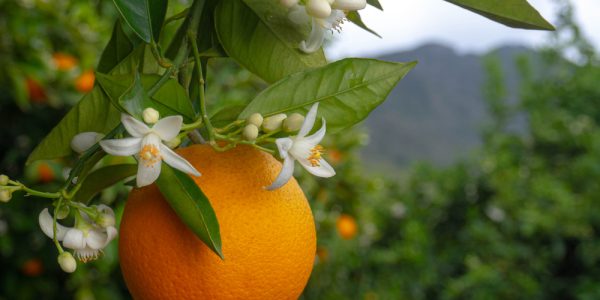
Communications Office
How many times have we drunk blackberry juice, or prepared a salad with broccoli? Did you know that they come from a flower? In the fascinating world of plants, flowers occupy a central and vital place. Not only do they delight us with their beauty and fragrance, but they also play a crucial role in the ecological balance and food chain.
According to Dino Tuberquia Muñoz, professor of the Biology prora at CES University “ a flower is a specialized branch of plants, adapted for reproduction. In botanical terms, flowers are reproductive structures that contain male and female reproductive cells, and when joined together, they promote fertilization and later the formation of seeds enclosed and protected by fruits. They are, in essence, modified leaves with specific characteristics, almost always to attract pollinators such as bees, butterflies or birds, thus facilitating the pollination process”.
“Flowering plants, known as angiosperms, constitute the most diverse and abundant group of plants on Earth. The importance of flowers lies in their essential role in the reproduction of these plants. Without flowers, there would be no fruit or seed formation, which would compromise the perpetuation of plant species and other associated organisms”, explained Professor Tuberquia.
Estela Quintero Vallejo, professor of the Ecology program at CES University, adds that “the diversity of flowers is impressive, and not all of them are as colorful and showy as we usually imagine. Some plants produce inconspicuous flowers, which camouflage with the foliage, also fulfilling their reproductive function by attracting pollinators”.
Quintero also stated that “Some plants produce flowers that are not very colorful, which may go unnoticed to the naked eye. This is because flowers do not always need to be showy to fulfill their reproductive function”.
For humans, angiosperms are essential, since a large part of our food comes from this group of plants. Fruits such as blackberries, oranges and guavas; vegetables such as broccoli and cauliflower; grains such as corn and rice; and edible flowers such as marigolds, all products derived from flowering plants, form the basis of our daily diet.
In addition to their direct contribution to food, flowers also have a significant impact on the ecosystem. They act as a bridge in the food chain, supporting a variety of animal species, including the pollinators that depend on them. Without flowers, the ecological balance would be severely disrupted, putting biodiversity and thus the stability of the planet at risk.
In short, flowers are not mere ornaments of nature. Their importance transcends their appearance, as they are fundamental to life on Earth. Through their role in plant reproduction, they ensure the continuity of numerous plant and animal species and are thus pillars of human sustenance.

Universidad CES
Cl. 10a #22 – 04
Medellín, Antioquia

Para más información ingresa
a nuestro sitio web:
www.ces.edu.co
Deja un comentario